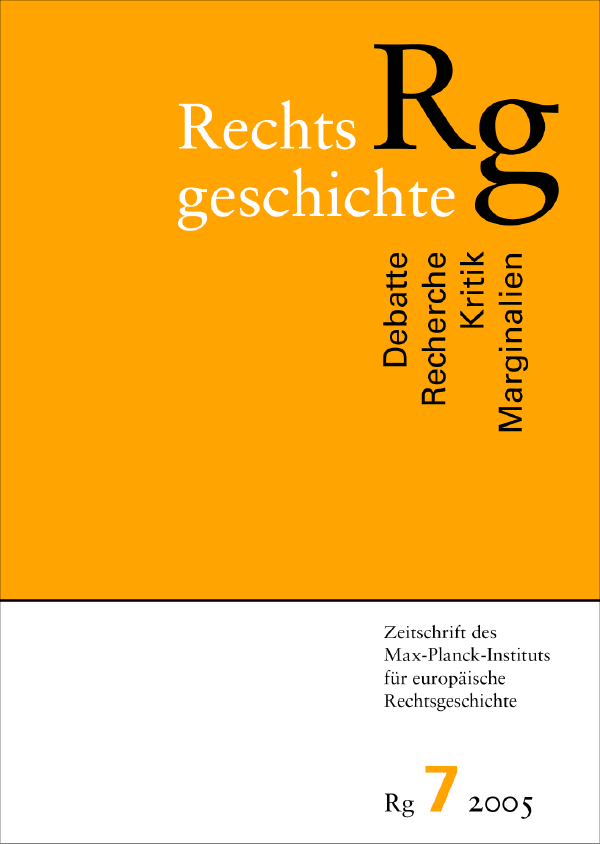Geltung
Der Weg von der Gewohnheit zur Positivität des Rechts
DOI:
https://doi.org/10.12946/rg07/100-137Abstract
The transition to a written form of law, as also the mass reproduction and dissemination of statutory enactments, are decisive preconditions for the emergence of positive law. This process of »positivisation« is here understood as a process in the course of which the conception of law and the conditions for its acceptance change. Legal norms will increasingly be accepted as binding or »in force« because a formal enactment and the command of a legislator to obey the norm stand behind them. If throughout the entire early modern period legal theory saw in the actual usage of a norm the necessary precondition for its binding force, the gradual change to a positivistic understanding of law is first realised at the level of the law of evidence. Step by step the demands for proof of the validity of a legal norm are heightened in the legal cases, in which a party relies upon a printed or at least a recorded legal norm. In this way the form of the tradition of the legal norm takes on a new meaning: Legal norms which have a written tradition or are contained in an authorised collection of enactments have a higher chance of being accepted by the court.
Downloads
Published
How to Cite
Issue
Section
License
Copyright (c) 2005 Author

This work is licensed under a Creative Commons Attribution-NonCommercial-NoDerivatives 3.0 Unported License.





